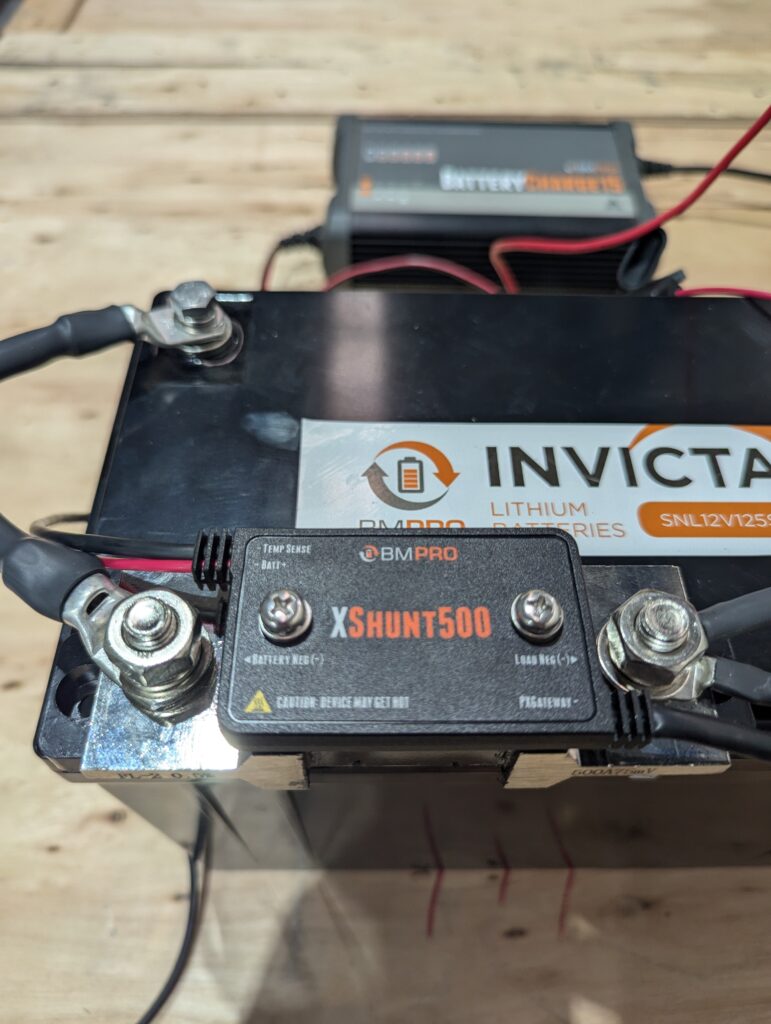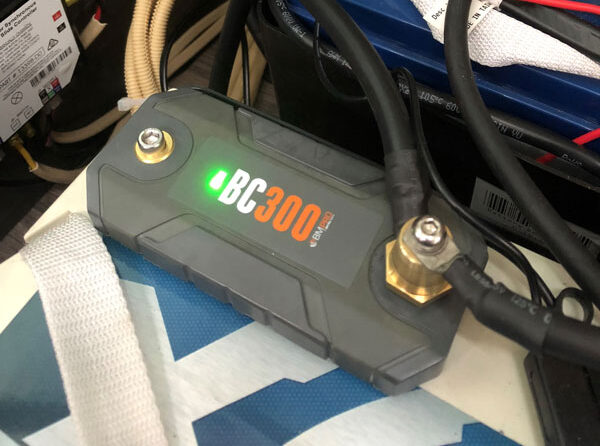
12V Guru – Wiring Checkup
Heading off road in an older van and want to know what to check? Our 12V Guru discusses how to give your electricals a ‘once over’ before you head off.
Hey 12V Guru,
We recently sent a BMPRO BP35 35 unit back to your team under warranty as it appeared damaged – the +ve terminal on the battery connection looked rusted out but apparently it was damaged on the inside? I didn’t really understand the issue as explained – can you please lookup my repair ticket and clarify?
Raphael Moreau
Hi Rafael!
We have had a look at the ticket created when you sent your unit back and very happy to explain further so that yourself and others can prevent this issue from happening in the future. The very basic version is that you had a loose connection on the positive terminal of the BP35 unit where it wires down to the battery. This loose connection caused an electrical condition of higher resistance and therefore the rust colour which you describe is the oxidation process that occurs during an electrical brownout due to poor connection. Heat has drawn up inside the unit from this poor connection point and caused damage inside to other components.
When an electrical connection becomes loose the load that is connected, in this case the battery, is still drawing power from the source provided. However, the poor connection causes an increased resistance to the power drawn through this point and arcs from one surface to the other. In this case from the wire to the screw terminal or the spade connector. This arcing creates heat which is our worst enemy in this scenario. Overtime with continual vibration as the connection is broken and remade multiple times the heat continues to build up and subsequently melts the wire, the connector and/or insulation overtime. It depends upon the amount of current being drawn through this connection and the severity of the loose connection as to how quickly or severe this process will actually be.
As the heat builds up and the wires and insulation around begin to disintegrate this causes the heat to look for other avenues in which to dissipate and spread. In the most severe cases this could be in the form of creating a combustion event or further damage to other electrical componentry in the path. Heat also increases the oxidation on the metal surfaces and this in turn increases the resistance between the wire and the terminal, making it worse.
There are many things that you can check to ensure you have high functioning electrical connections. Firstly, a simple tug test will ensure that your connections are properly secured to the terminal to which they’re being attached. Turn off all sources of known power – eg. solar, AC vehicle AUX, removing all jewellery, watches etc, to prevent electrical shorting. Use your thumb and forefinger gently pull the wires from their connected point to ensure a stable connection. There is no need to “yank” the wires as this does not replicate the real-world scenario. We are merely trying to replicate vibration during normal use of the RV. If you find a wire that is relatively easily removed from its connection, you should immediately re-secure properly.
Secondly, if you are using screw terminals ensure that the wire is wrapped around the screw are secured in a clockwise manner as this will be the same direction as tightening the screw and therefore prevent inadvertently loosening.
Thirdly, check that the insulation leading into the connection does not have excessive bare wire exposed which could cause a short or that the insulation outside the wire is not impeding the connection.
Overall, at BMPRO we would recommend as part of the general maintenance of your caravan that you would regularly check the terminal connections between the various components of your system. Just as you check your driving lights or your coupling it is very important from a safety perspective to check these electrical connections to ensure not only you and your family’s safety but also the integrity of your system to reduce the likelihood of an unexpected issue ruining your annual holiday. Most systems are installed by highly qualified 12V electrical experts, but after you have taken several trips, the road conditions and general use can have an impact on your system so regular checking is advisable.
Safe travels,
12V Guru
Like this post? Share it!

Heading off road in an older van and want to know what to check? Our 12V Guru discusses how to give your electricals a ‘once over’ before you head off.

What’s going on with my batteries? Our 12V Guru discusses how shunts can help you track your batteries activity

An electrical shunt is a critical component in electrical circuits. Find out why it’s important and how it functions right here.
